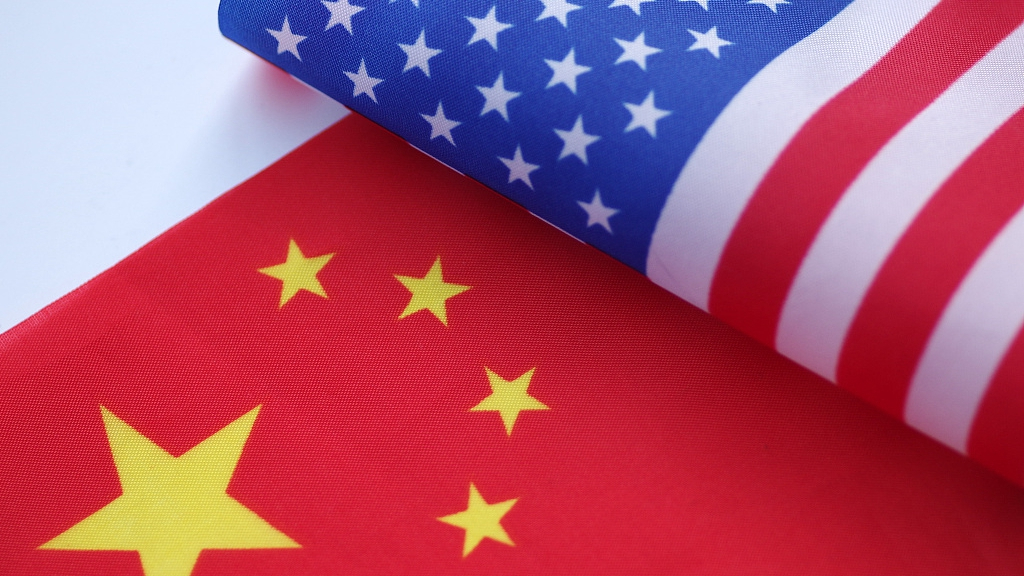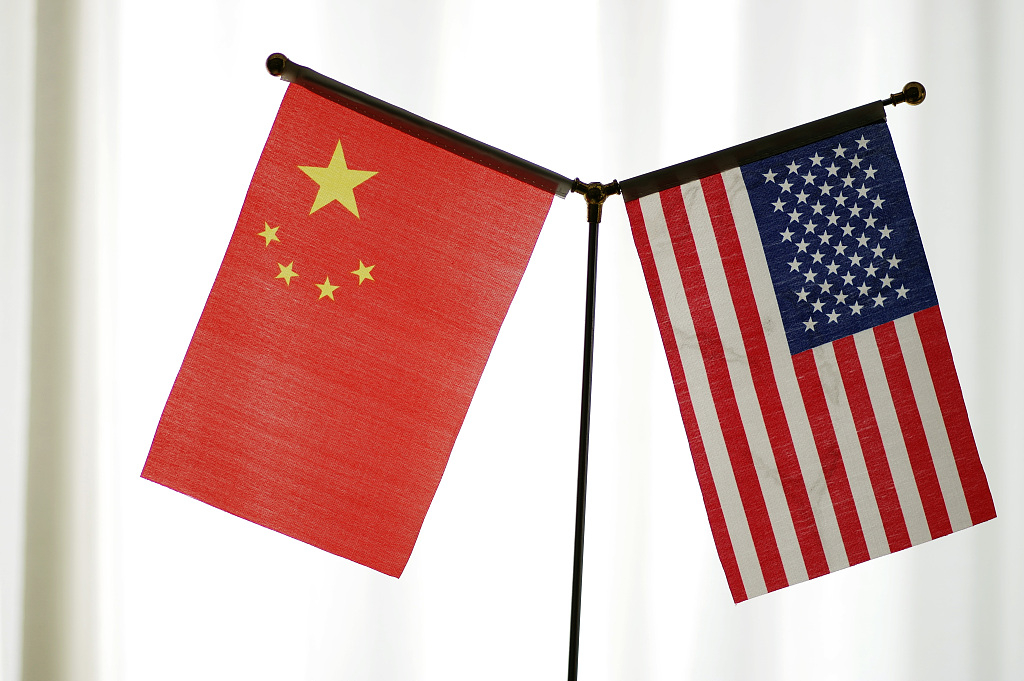

Editor's Note: Andy Mok is a senior research fellow at Center for China and Globalization. The article reflects the author's opinion, and not necessarily the views of CGTN.
If one is concerned that the China-U.S. relationship is on a permanent downward trend and is skeptical about the narrative of American exceptionalism and the unwavering and blind devotion of its evangelists, the China Development Forum held in Beijing last weekend provides a powerful boost of optimism.
On the question of how bad the state of China-U.S. relations is, we need to take a step back to survey 80 years or so of its history. And it suggests we are at a cyclical, and not a structural downturn in the relationship.
Modern China-U.S. relations started with World War II and a partnership to conduct industrial age warfare, according to Joshua Cooper Ramos, vice chairman and co-chief executive of Kissinger Associates. In this era, the generals led the way. Next, we entered a period of estrangement where the threat of nuclear war became the organizing principle and diplomats held sway. Then came the time of economic cooperation when opportunities from globalization took center-stage and corporate CEOs were the main actors.
During each of these periods, core interests diverged and shifted with the rise of each new era. Not surprisingly then, breakdowns and deadlocks occurred, especially during the transition from one era to the next. According to Ramos, these conflicts were not only normal but necessary to establish a new equilibrium and consensus.
We have entered a new era and are therefore undergoing another breakdown in China-U.S. relations. The nature of this new era, however, is profoundly different from the ones that preceded it.
In his speech at the China Development Forum, Ramos outlined the view of Kissinger on these changes. First, connectivity, which includes artificial intelligence, is changing power dynamics in every sphere of society. Just as the Enlightenment obliterated existing institutions, this new change is doing the same.
Specifically, this emerging world makes the American notion of liberty and the role of the individual exercise of human reason as the ideal for political decision-making obsolete. Henry Kissinger's recent writings on the impact of artificial intelligence provide just one measure of these changes. In addition, the rise of social media giants demonstrates the willingness of consumers (i.e. citizens) to trade liberty and privacy for convenience.

VCG Photo
As a result, we are at a cyclical redefinition of the China-U.S. relations that is as natural as the progression of the seasons. However, in this emerging new season, the power relationship between China and the U.S. will be profoundly different. This comes as forces create entirely new institutions and structures based on principles and premises that are more aligned with the China model.
Martin Jacques, a senior fellow at the Department of Politics and International Studies at Cambridge University, provided further insight on this emerging trend. He noted that morally, economically and technologically China will soon be comparable, if not superior, to the U.S,. While the U.S. has relied primarily on its military to provide and enforce its global leadership, China leads with its culture and economy. The Chinese approach is more peaceful, and more likely to be accepted and supported by other countries.
Tom Friedman, a weekly columnist for The New York Times, observed that the world has become "deep": Deep learning, deep fakes and more. This has exacerbated tensions in the China-U.S. relationship as flashpoints between the two countries become deeper. Because of the deeper and more intimate connections through 5G, digital assistants and other AI-powered devices, establishing trust has become increasingly vital. In fact, Friedman said the current conflict between China and the U.S. is not a trade war but a “trust war.”
The American worldview has predicated on several key but false premises as well as political inconsistencies. The transition to a new era powered by connectivity is accelerating the recognition of these weaknesses by policymakers in and outside of the U.S. It is also helping to create a Chinese-inspired viable alternative with greater legitimacy and global acceptance. As the China-U.S. relationship goes through this phase of deadlock, a new and more cooperative era will emerge, just as surely as spring follows winter.
(If you want to contribute and have specific expertise, please contact us at opinions@cgtn.com)

Copyright © 2018 CGTN. Beijing ICP prepared NO.16065310-3
Copyright © 2018 CGTN. Beijing ICP prepared NO.16065310-3